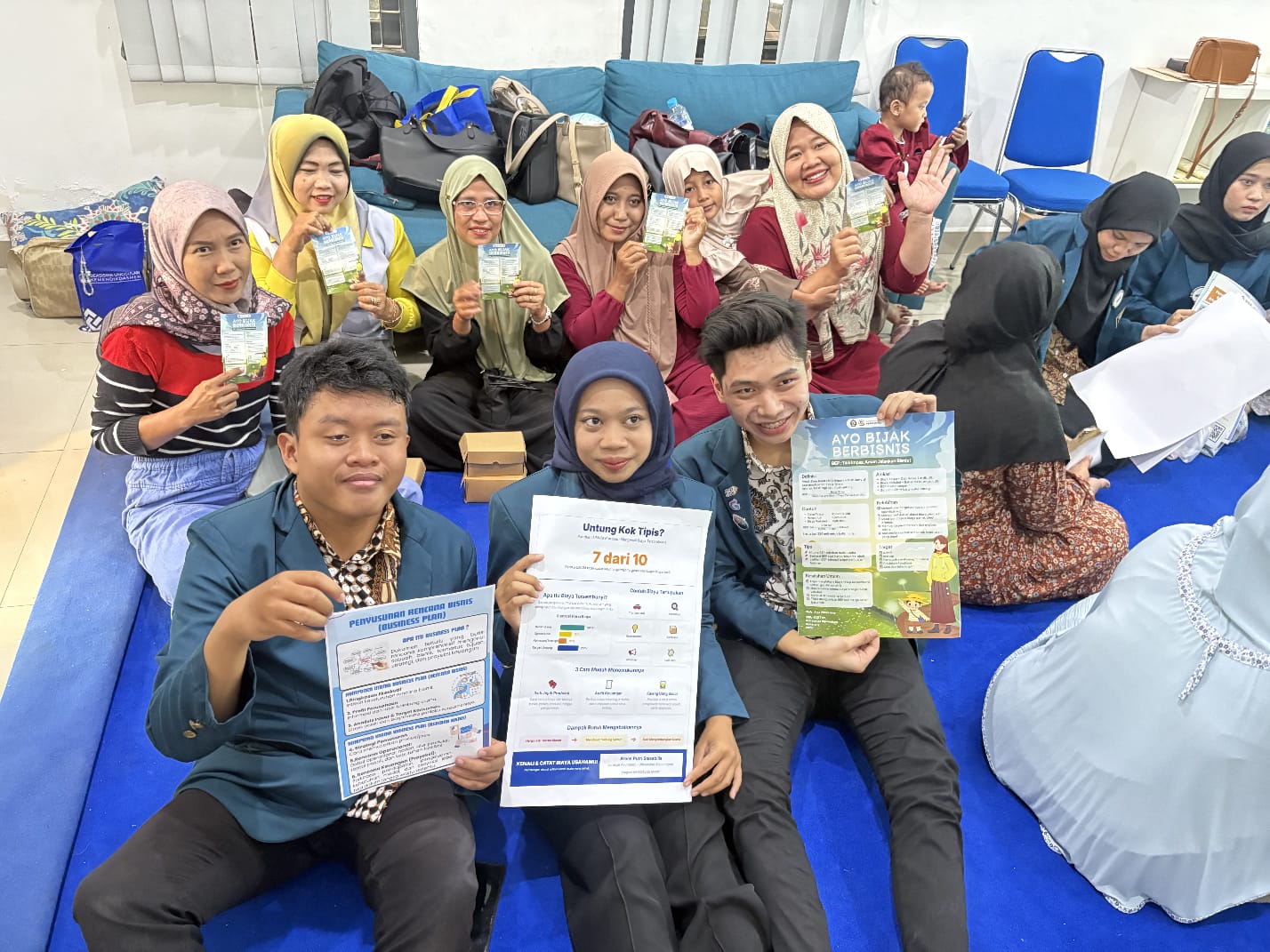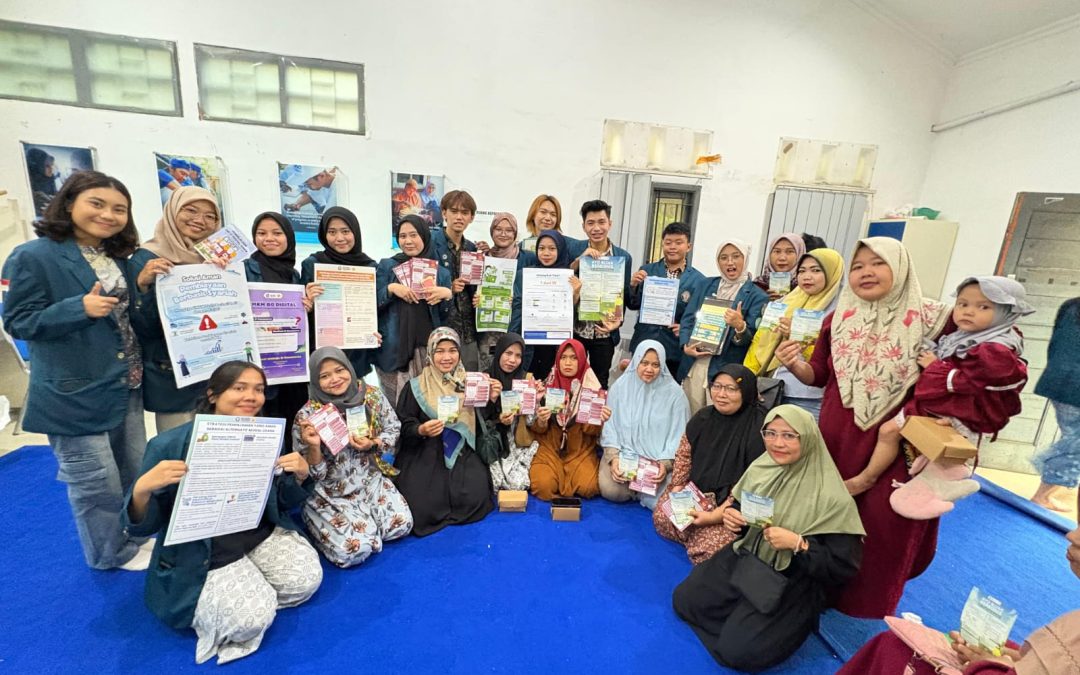Students of Universitas Diponegoro (Undip) participating in the 2025 Community Service Program (KKN) under the “Iptek Desa Binaan” scheme have successfully carried out a community empowerment project titled “Strengthening MSMEs Through a Multidisciplinary Approach of Economics and Management” in RW 3 and 4, Rowosari Village, Tembalang District, Semarang City. The 45-day program represents Undip’s commitment to fulfilling the Tri Dharma of Higher Education, especially in community service.
RW 3 and 4 are areas marked by the dynamic growth of micro, small, and medium enterprises (MSMEs), primarily in sectors such as home-based food production, handicrafts, services, and daily trade. However, initial observations by the KKN team revealed persistent challenges faced by MSME actors, including weak business management, poor financial recordkeeping, lack of digital promotion, and inadequate product packaging.
In response, Islamic Economics students at Universitas Diponegoro took the initiative to lead a solution-oriented, multidisciplinary approach. The Islamic Economics Study Program actively fostered collaboration with students from other departments such as Management, Economics, Accounting, and Business Administration. This synergy enabled the design and implementation of integrated empowerment programs that addressed both managerial and ethical aspects of MSME development.

A key initiative was the training in basic financial management, where MSME owners learned how to systematically record income and expenses, calculate profit and loss, and manage daily cash flows. These sessions also introduced financial practices grounded in Islamic financial principles, providing a values-based alternative for sustainable business operations.
Branding and digital marketing training were also prioritized. Participants gained insights into brand identity, marketing strategies on social media, and techniques to attract modern consumers. The KKN-T IDBU 59 team helped design logos, product labels, and promotional content tailored for MSMEs with strong growth potential.
Moreover, the team carried out a comprehensive mapping of MSMEs in RW 3 and 4 and compiled digital business profiles. This data will be handed over to the Rowosari Village administration to support the planning of evidence-based community development programs.
The KKN program concluded with a Forum Group Discussion (FGD) involving local entrepreneurs and village officials. This forum served as a platform to showcase the outcomes of the KKN initiative and to connect local MSMEs with broader markets. The community responded enthusiastically, expressing hope that similar initiatives would continue in the future.
Through this program, Universitas Diponegoro reinforces its commitment to societal development by applying academic knowledge to real-world challenges. The Islamic Economics Study Program demonstrated its openness to collaboration—both within the university and with the wider community—ensuring that MSME empowerment is grounded in inclusive, ethical, and sustainable economic values.

